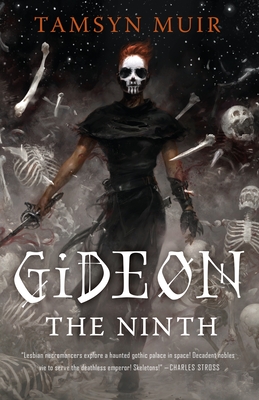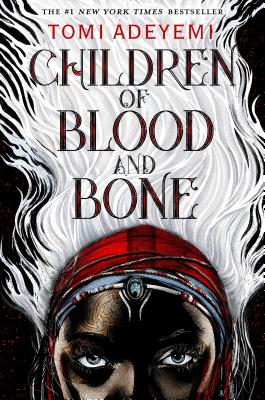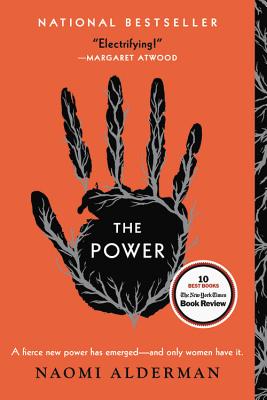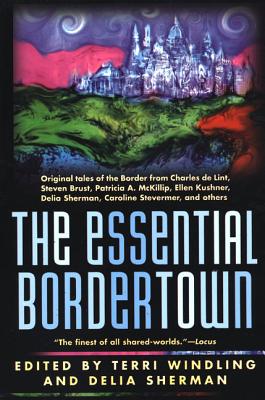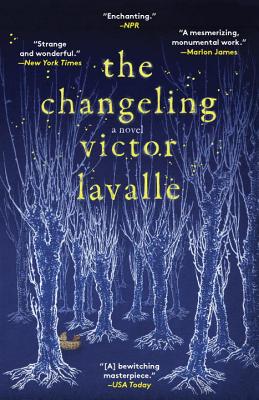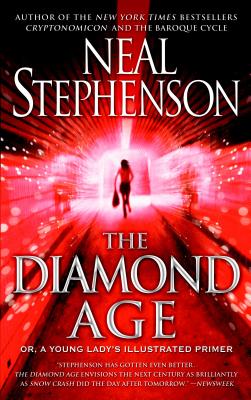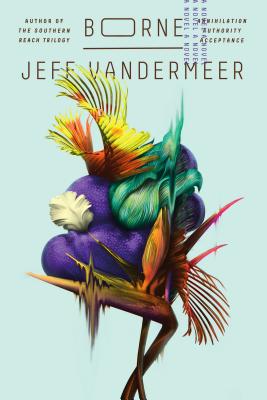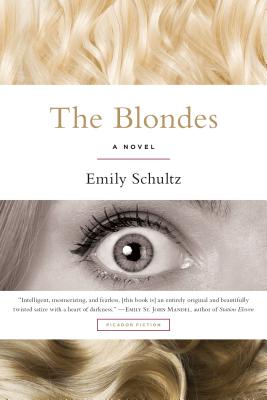1
Once I saw a newsreel of Queen Elizabeth II making a speech when I was still living in Beijing in the 1990s. I was puzzled by the way she spoke English, even though I could not understand half of what she said. I noticed that her lips barely moved when she spoke. She seemed to have the quality of a ventriloquist, but there was no little painted doll sitting on her shoulder flapping its lips. Her whole manner was strange and impenetrable. I never got to the bottom of my puzzlement. A few years later, however, after managing to get a scholarship, I came to Britain, and started to live in London. Then began a journey of discovering English and Englishness.
For the first few years in London, I struggled to understand the language of the BBC and newspaper articles. This language was very different from the everyday language I had got to know in the street and on buses. It was full of political vocabulary and journalistic conventions that I found opaque and remote. Watching the Queen’s speech now regularly on television gave me no encouragement either. So I went back to my usual habit: studying words from English menus in eateries. One day, as I was having breakfast in my local cafe, I heard a tune from the radio, which blasted from speakers on the ceiling. The middle-aged lady who served tea shouted to a chef near the counter: ‘The Archers! Can you turn it up, Jim?!’ ‘Sure, Dot!’ was the reply.
Then suddenly the cafe reverberated with a jingle-jangly jaunty theme tune. When that died away, some English voices started to resound. I listened with anticipation trying to discern the point of it. It deduced that it was a soap drama, composed by interminable dialogues between elderly English characters in a rural country setting. There was the occasional moo of a cow, baa of a sheep and the sound of machinery. The characters spoke English English, definitely not foreigners’ English. The lady in the cafe, Dot, leaning by the counter listened with mild concentration while folding napkins with a beatific smile. I thought this program must be of some national importance, since no one in the cafe complained about the noise. I listened attentively till it finished, by then I had deposited the baked beans and white toast in my oriental stomach. Then the news started. Dot, looking a little flushed, turned the sound down. She didn’t seem to care about news or world affairs. An atmosphere of relative peace and quietness returned to the cafe, which gave me a chance to ask Dot some questions when she came to clear my table.
‘The programme you just listened to, is it very important?’ I asked with my broken English.
‘You mean The Archers, love? You ain’t never heard of it?!’ She looked unbelievingly at me, as if I had only recently emerged from the jungle, a total ignoramus about worldly things. ‘Don’t you know five million people in this country listen to it every day?!’ Dot wiped my table with vigor and pride.
‘Oh, really!’ I was impressed. ‘What is it about? I come from China . . .’ I inserted my question apologetically.
‘You come from China! You’re new then?’ The lady re-arranged the mustard jar on the table and wiped the ketchup bottle with a rag. ‘It’s about family life on a farm in the Midlands. You know, we English like these sorts of settings – sheep, cows, dairy farming, family dramas, chit-chat fun things.’
I nodded attentively. Yes, I thought to myself, that explains the cow and kettle-boiling sounds, the barn door creaking, along with the umm-ing and ah-ing of the aged voices. Just as some people eat so-called comfort food – like rice pudding – this must be comfort radio, a rice-pudding of narrative.
Later on, I returned my flat and commenced a brief online study of The Archers. An informed immigrant is a good immigrant. Then I found out that the programme was not only the longest running radio soap in Britain, but the longest in the world. It started in 1950. Originally it aimed to educate farmers and thus increase food production after World War II. But rapidly it became a major source of entertainment for urban as well as rural audiences. Just as we Chinese have ‘Peasant Education Channel’ public service at home, I guessed? That was how we learned to weave bamboo baskets or cure a sick pig. So should I listen to it too, just to enhance my English as well as my new life in the UK? Perhaps I should not worry about learning the Queen’s perfect English, and should start from here, the not so high-brow English in The Archers?
Over the next few days, after having submitted myself to the programme several times during my noodle lunches, I lost any appetite I might have had to join the great listening family of The Archers. To describe the programme as a living-death might be a slight exaggeration. After three or four listenings, the theme music induced a strange torpor in my body – an interesting sort of claustrophobia. Then there were the conversations about the minutiae of children’s marriages and health. Their conversations seemed to be too indirect, touching on topics like climate change or organic farming, but never ever truly entering. To the din of sirens piercing through my walls, I grew restless. There were no immigrant characters in the story, no serious social debate, no racial problems, no economical crises, no real politics. It was an oasis of rural England outside the currents of history. That was its purpose. What else should I have expected? But it was still strange for me. In China we have similar soaps too, the popular ones were always to do with grand love and revolution, but not about domestic ladies living inside a little house and chatting about weather. Only some months later, I learned that the most popular newspapers in Britain were the Daily Mail and the Sun. Were the readers of these tabloids and the followers of The Archers one and the same, I wondered?
Then my thoughts crystalized into a clearer idea. This was an idea about ideology. The most powerful kinds of ideology work by concealment. The apolitical world of The Archers was the surface that instilled in its listeners a supremely political position. This was the position of acceptance of the status quo. The Archers’ farm was the British state, the animal hierarchy, from chickens up to horses, the mildly entrepreneurial farmers and the middle classes, ever aspirational, fearful of the lower orders, they trudged through the mud and dreamt of the harvest and the sunny uplands. People often don’t think the English have ideology. They may think the Chinese are infused by ideology – our revolutionary peasant visions and the Communist system. But not the British! How bizarre. It just goes to show how powerful the ideology in this land is and how effectively people’s lives have been shaped and subjugated by it.
I thought this invisibility of ideology was part of the reason why the British, but the English in particular, had this knack for deflecting all direct engagements. Beneath their social surfaces were deeper surfaces, through which they deflected their own thoughts about themselves. They sought insulation from any idea of change. This explained a number of things about the country: people’s ability to withstand awful public transport and privatisation of nearly all public utilities and a constant ability to vote against their own interests. Yet there was rebellion, though of a superficial kind. Angry working class teenagers would periodically riot against society in general and loot high street stores. From the 1970s onward there was ‘revolution’ in the world of pop, which amounted to punk musicians being bad mannered on stage. This was perhaps the existential cry, raw and inebriated, of a jagged reaction to the kettle-boiling and cake-baking families who dwelt eternally in the village of Ambridge, the home of The Archers, the spirit of the English that would never die.
Don’t get me wrong. I am not suggesting that the English are anymore ideologically infused than other nations. My essential thought was this. In finding out how ideology works in a country, you find out about a significant aspect of ‘national character’ in that land.
2
My next lesson in ideology came several years later. I was sitting in a ‘Life in the UK’ exam, during an afternoon somewhere in north London. We were in a dim and shabby looking multi-functional community space with two examining officers monitoring us. Next door, a Turkish kebab shop blasted out a loud cacophony from a televised football match. Before I had entered the exam room, I had been waiting in this restaurant, eating a very burnt lamb skewer with a plate of salad. Now the meat was giving me a stomach ache, or was it just the anxiety I was feeling about the exam? Would I fail? I probably would. People say it takes three generation of immigrants to become native, or feel native. In this case, I had to hope that my grandchildren would feel less alien here, assuming they would be willing to stay in this country when they grew up. Maybe they too would be wanderers.
Three weeks before this ‘Life in the UK’ examination, I had been trying to memorise historical facts about Britain – its monarchical system, the Commonwealth and its countries, as well as legal and social aspects of the UK. Since I was not from a former British colony, I was not familiar with the Parliamentary and Constitutional Monarchy system. Although there was a lot to learn, my efforts to concentrate were not always effective. Moreover, I thought I did not really have to learn things by rote because I thought I had exam technique. Back in China as a school kid, I prided myself on the idea that I had learnt to make the right answer for any question. And in most cases there was only one answer anyway. When, however, I found myself in the exam room, I realized, staring at the paper, that was a multiple choice exam:
Please tick the right answer: King Henry VIII’s daughter Mary was a devout Catholic and persecuted Protestant, which is why she became known as:
A: Catholic Mary B: Contentious Mary
C: Bloody Mary D: Killer Mary
I cursed myself. What an ignorant immigrant! I should have learnt the difference between Catholic and Protestant, as well as the nicknames of Henry VIII’s heir. During my preparation for this test, I was aware that being someone who grew up in a Chinese communist household was a defect for this exam, and I had studied facts such as that women had gained the vote in 1928 in Britain, and that abortion became legal in 1967, and so on and so forth. But I hadn’t paid attention to the royal family’s nicknames! I regret that I spent most of my days reading twentieth-century French novels and German politics in my London flat. Now I realized that twentieth-century European history was not important at all for this exam.
Sitting before my question paper, I randomly ticked the answer B or C, though sometimes with a faint intuition about which was correct. Perhaps an A for a change? As I circled ‘Catholic Mary’ with my pen, I suddenly had the feeling that I was at risk of losing my British Citizenship. Well, I didn’t have British Citizenship yet. I was risking not gaining the qualification I needed for application of my Naturalisation.
As the sub-continental-looking examination officer paced up and down, I thought: why were there no questions about the East India Company or Partition? I exhaled with a long and unsure breath, and moved onto the next question:
What kind of bird do people usually eat on Christmas Day?
A: Duck B: Chicken C: Turkey D: Ostrich
An easy question at last! Even though previously I only had one Christmas lunch experience in London with an Italian family eating a huge ostrich. Yes, a stuffed ostrich with heavy gravy all over its rubbery flesh. But, on second thoughts, maybe I should not take this question to be as simple as it had seemed to be. When it asked ‘people’, did it mean ‘any people’ or ‘English people’? As an oriental living in Britain, I always ate a bowl of noodle alone in a rented flat during the Christmas. Santa Claus never visited my chimney, neither friends nor families. Come back to the question: ‘What kind of bird . . .’, I disliked eating any kind of bird. I dread the idea of alien hormones from caged chicken farms infesting my stomach. And what about the vegetarians in this country? Was the Christmas spirit incompatible with the consumption of tofu or any sort of bean curd? Or stir fried bok choy in ginger sauce?
Now as I refocused on the exam sheets, letting the flood of dead bird-imagery fade, I quickly ticked the ‘C: Turkey’ and move on to the next. The next question would be a more serious one, I presumed.
The House of Lords is normally more __ in the government than the House of Commons.
A: powerful B: successful C: independent
Hmm, House of Commons. House of Lords. I always found these expressions odd. It made me think of the Ming Dynasty’s East Court and West Court, whose role was to serve the Emperor. That was 500 years ago. For all these years living in London, I had never passed a building with either of these names, Lords or Commons, on it. Perhaps I had only lived in the poor part of the town? I had a ludicrous image of miniature houses stuck inside the Palace of Westminster and the Queen watering her tulips next to them. Gazing back at the sheets in front of me, I murmured again: The House of Lords is normally more powerful, or successful, or independent in the government than the House of Commons. I rescanned the three adjectives. The more I stared at the word ‘Lords’ and ‘Commons’, the heavier my eyelids weighed upon me. I needed coffee. Then I thought harder. Independent felt like a more neutral word than the pompous vocabulary of powerful or successful. It suggested democracy, which was the image that the UK liked to project. I marked C. The clock was ticking and I faced the last question with no time to spare.
Which of the following is a country of the UK?
A: Channel Islands B: Scotland C: Republic of Ireland D: Isle of Man
A country in the UK? What a provocative question for someone from People’s Republic of China. I knew Scotland was a country, though without a border with England or using a different passport. I did study aspects of British constitution, and repeatedly read about Britain comprising a number of countries. But still, for me, I could never get used to this idea that this archipelago in the Atlantic should comprise so many different countries rather than provinces. I still remembered reading George Orwell about Englishness: ‘We call our islands by no fewer than six different names, England, Britain, Great Britain, the British Isles, the United Kingdom and, in very exalted moments, Albion.’ While in my experience, London really seemed to be a different country than the rest of the UK. I sighed, and ticked B.
As I exited the exam room, I had little hope that I would pass. Deep down I think my lack of preparation was not just laziness, or merely the product of preoccupation with other things, but also resistance. There was something about the implicit pride in a supposed thousand years of monarchy, and the parliamentary system – which few I suspected understood – that made me feel ill at ease. It was the same syndrome as The Archers. I was just being introduced to the cultural symbols and motifs of the United Kingdom. People learn the history of kings and queens just like we learn fairy tales or consume the latest soap operas. And what for? It’s all about instilling the collective wisdom of the ruling classes, yet done in the most bland and innocuous way.
3
A month later, I received the test result which told me I had passed the exam. So I began to proceed with my naturalisation. Four weeks later, I received a formal letter from the Home Office, congratulating me that I was in the final stage of this long process and I needed to participate in a naturalisation ceremony.
On the day of the ceremony, I put on a newly washed but plain looking coat. My immigrant’s experiences made me think in this way: to be normal and to look normal are probably the most appropriate gesture in these circumstances. The last thing you want is to stick out from the crowd. It’s not like attending Glastonbury music festival. So I got off the bus near Bow in East London, I stepped into a town hall building, and met with some non-native looking families. They were all well dressed – women in colourful outfit and men in suits. I presumed they were Bengalis or Indians, and a few members of African family. Then there were several white Europeans. The Europeans sat alone with their Iphones in hands, away from us, without any family companions.
In front of a massive portrait of the current Queen, I was given two different coloured sheets. Each one was a printed version of the oath I could read aloud with others. But I had to choose which text I would follow.
The red coloured oath went like this:
I, [name], swear by Almighty God that, on becoming a British citizen, I will be faithful and bear true allegiance to Her Majesty Queen Elizabeth the Second, Her Heirs and Successors according to law.
Then the green coloured oath read like this:
I, [name], will give my loyalty to the United Kingdom and respect its rights and freedoms. I will uphold its democratic values. I will observe its laws faithfully and fulfil my duties and obligations as a British citizen.
I now knew which oath I would read, and felt relieved that I don’t have to read something totally against my beliefs. As if this is not enough, immediately, we were also given a blue piece of paper, on which was written:
Under the Oaths Act 1978, any person who objects to swearing an oath may instead make a solemn affirmation. This also applies when it is not practicable to administer the oath in accordance with a person’s religious belief (e.g. if the sacred book of the person’s religion is not available). The relevant provisions of the Oaths Act (sections 5 and 6) are applied to citizenship oaths by section 42 (7) of the British Nationality Act 1981.
I was totally lost with the gabbled legalese of the blue paper. Then I found a white sheet underneath it. It read:
An oral affirmation should be made as follows:
I, [full name], do solemnly, sincerely and truly declare and affirm that on becoming a British Citizen, I will be faithful and bear true allegiance to Her Majesty Queen Elizabeth the Second, Her Heirs and Successors, according to law.
Words on the paper became a rap song, looping in my ears. And I began to shake my head left and right with rhythm. But the Queen’s stern looking poster caught my eyes. I could have sworn for a moment that her eyes were following me. I recomposed myself and began to look around. Everyone seemed to be a little lost, especially an elderly lady in her multi-layered golden sari. Disoriented, I decided to join my European neighbours and stood beside them. I would just read any coloured paper that they would be reading. I could see that they were all holding green paper.
Under the instructions of a respectable looking gentleman before the Queen, the gathered mass of new citizens read aloud their oaths in a muffled voice. Male and female, young and old, Asian and Africans, Europeans and Latinos, we all trundled along with various level of ease or uneasiness.
I will give my loyalty to the United Kingdom and respect its rights and freedoms. I will uphold its democratic values . . .
When I was reading those lines, I was almost touched, especially with the phrase about upholding the democratic values even though I didn’t have any clear vision where Britain would be heading to in the future. Anything could happen. In fact, anything did happen, with the strange escapade of Brexit that later gripped the neck of the country. Though that was the future. But right at this moment we had to do what we were told, in this town hall, in front of the grand looking Elizabeth II held up by plastic poles against the rain drenched window. Just as the characters in The Archers must submit themselves to the boggy heaths, water-logged fields submerged in manure and the still extant medieval system of land ownership, we, citizens of the UK must live in our eternal village of Ambridge – assuming the borders are still safely guarded. I could feel the weight of my submission bearing down on me. I would mouth the empty words ordained by the state, and I would bend, genuflect and submit to the dull mantras that trickled down from the heights of power.
As my thoughts were propelled upwards through the tuneless humming of the collective mass, the national anthem resonated in my ears and took on the guise of an epiphany. Had I seen the light? I feared there was no light to be seen. I sang, zombie-like:
God save all dressed in green
Long live our noble Queen
God save the Queen
Send her victorious
Happy and glorious
Long to reign over us
Photograph © grassrootsgroundswell
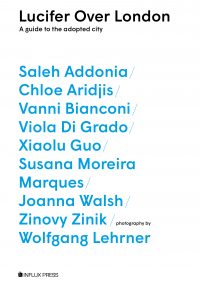
This essay was first published in Lucifer Over London: A guide to the adopted city, first published in Italian by Humboldt Books and published by Influx Press in May 2020.
The post Oath to the Queen appeared first on Granta.





